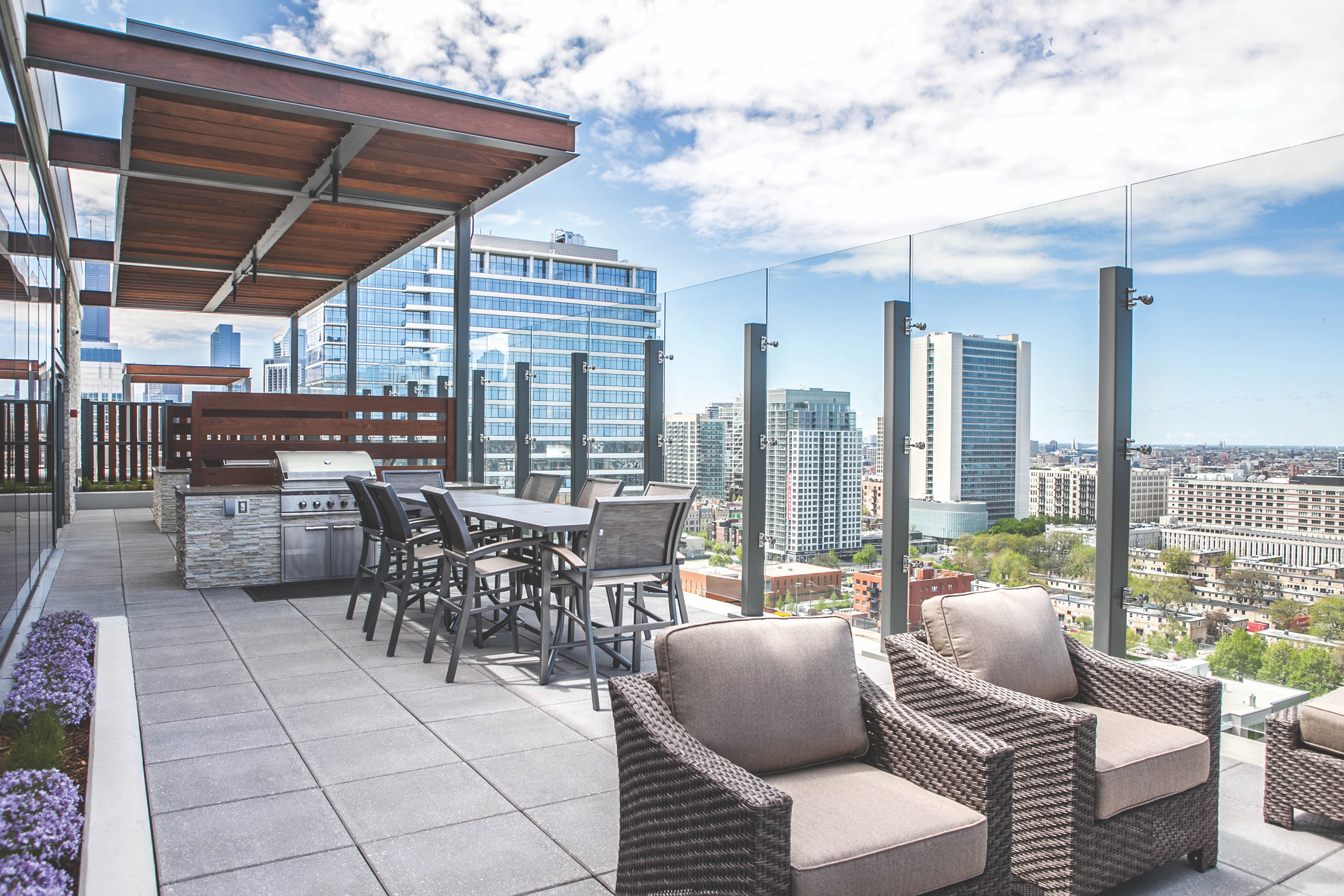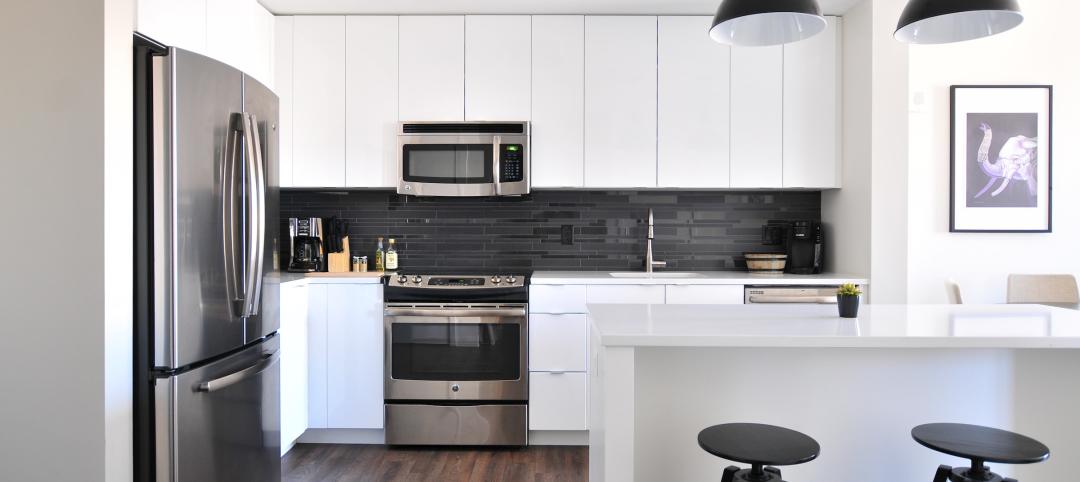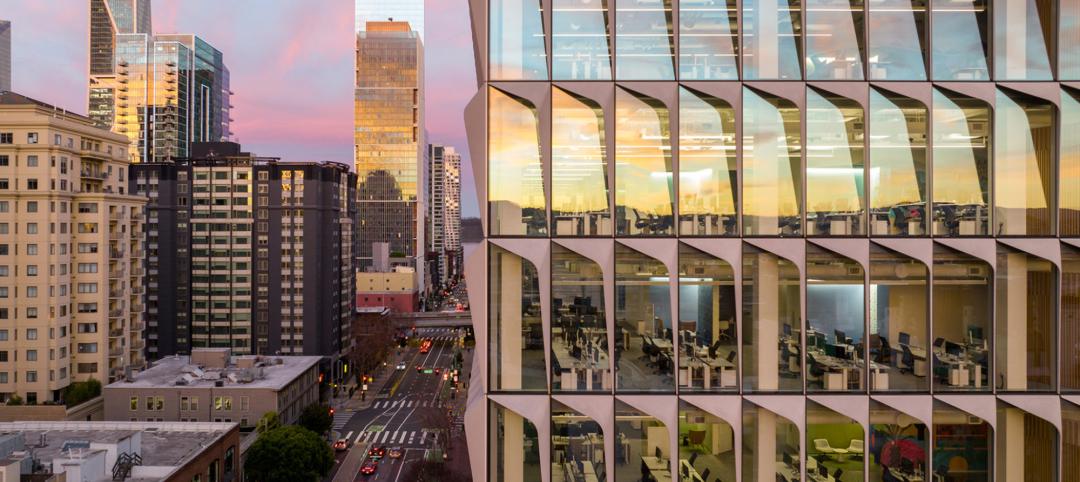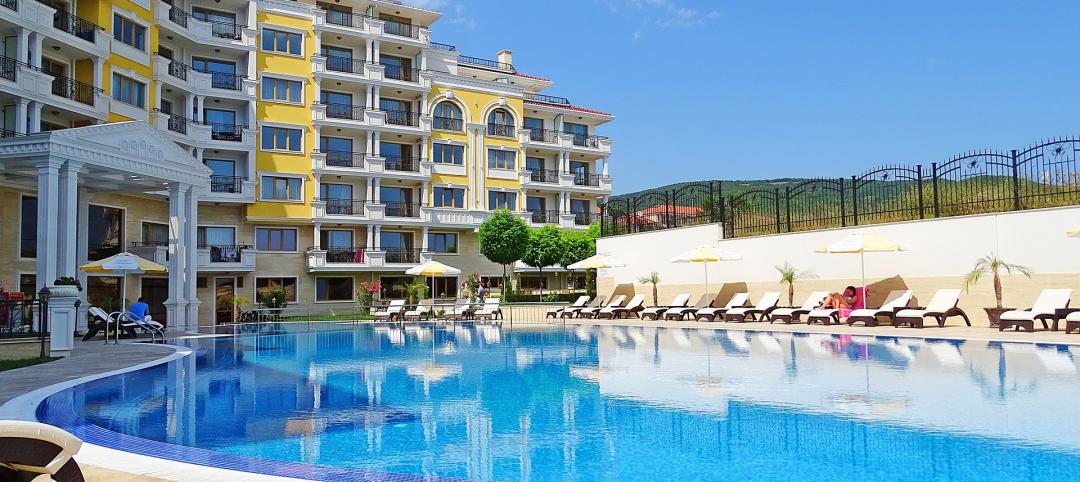A growing appetite for outdoor living spaces is fueling an expansion of outdoor kitchens on roof decks, terraces, and courtyards.
“In the last few years, we’ve seen an enormous increase in demand as high-end rental properties, condos, and townhomes take advantage of the indoor-outdoor living phenomenon,” said Mitch Slater, Founder/President, Danver Stainless Outdoor Kitchens (danver.com).
The design of these open-air amenity spaces has evolved from standalone grill stations to sophisticated meal preparation and dining environments that emphasize convenience and community. “These days, the goal is to get people to stay outside longer and have a great experience,” said Kristen Larkin, ASID, Associate Principal, FitzGerald Associates Architects, Chicago.
Although there’s no standard template for outdoor kitchens, designers and manufacturers we spoke with shared practical advice for ensuring these amenity spaces deliver safe, memorable experiences for residents and guests.
1. Design a simple, logical layout. L-shape, U-shape, and island layouts are common configurations for outdoor kitchens. Marieke Lacasse, ASLA, LEED AP BD+C, Principal at Seattle-based design firm GGLO, recommends locating them close to the pool area or party room to create a social hub and event space. “Outdoor kitchens are places to congregate around food, so it’s important to provide adequate food prep areas, sink space, and support surfaces,” she said.
‘Outdoor living is here to stay, so not having an outdoor kitchen really devalues your asset.’
—Marieke Lacasse, GGLO
Larkin likes to engage the management company that will maintain the space early in the design process, to ensure everyone’s goals are aligned. “I want to make sure any decisions I make on their behalf are in the long-term interests of the building owner,” she said.
2. Provide indoor-outdoor continuity. The growing popularity of sliding glass walls opens the door for outdoor kitchens to function as extensions of the interior environment. “Interior designers need to work closely with landscape architects to achieve design continuity between these areas,” said Jason Valentin, Associate IIDA, Interior Design Coordinator at Stantec.
Team collaboration extends to design details. “Don’t just think programmatically about how the spaces work together, but think also about the overall language of materiality such as patterns, colors, and metals,” said Lacasse. “Every little detail needs to be thought through to create a cohesive indoor-outdoor connection.”

Toni Wendel, Owner of Olde World Builders and Remodelers, chose Danver Stainless Outdoor Kitchens cabinetry with green powder-coat finish for this condo building in New Orleans’s historic Warehouse District. Photo: Chad Chenier Photography
3. Select durable, easy-to-maintain materials. “We push for sturdy, stable baseline construction materials,” said Larkin, who favors steel trellises over all-wood structures. She recommends easy-to-maintain surfaces such as stainless steel cabinetry and granite countertops. Powder-coated stainless steel cabinetry offers added protection against moisture damage. Powder coatings can also be colored, opening up design possibilities.
The inevitable spills and splatters from shared grills should be considered when selecting flooring materials. “We’ve learned to use darker pavers in front of barbecue spaces, because grease is more visible on lighter-colored pavers and they stain easily,” said GGLO’s Lacasse.
4. Emphasize safety and accessibility. To protect residents and guests from the potential hazards of open flames and hot surfaces, locate grills, ovens, and fire pit tables in sheltered environments away from high-wind areas—or use a flameless electric grill. All adjacent structures should use fire-resistant building materials, such as fire-treated wood or light-gauge aluminum frame.
Designers also must follow ADA accessibility requirements for kitchens: providing adequate clearance areas and adhering to surface height requirements for sinks, appliances, cabinets, countertops, and food prep areas.
5. Take local climate into consideration. In colder climates sinks, icemakers, and refrigerators that have outdoor plumbing need to be winterized. “If an outdoor sink isn’t feasible, it’s important to consider adjacencies—how far will a resident have to carry a dirty spatula from the grill to an indoor sink to clean it?” said Larkin.
Humid environments and extreme weather events pose their own problems. “In Miami, we need to specify marine-grade materials such as plywood and cement board as a substrate for the millwork and cabinetry,” said Stantec’s Valentin. “We wouldn’t specify a typical laminate that we might use in an interior space.”

Pappageorge Haymes Partners installed this rooftop outdoor kitchen suite at LUXE on Madison (P II), a four-story, 44-unit apartment community in Chicago’s West Loop. Fifield Development is the developer. Photo courtesy Pappageorge Haymes Partners
6. Use lighting to enhance the ambience. Because nighttime is prime time for grilling, effective lighting is essential for maximizing safety and functionality. Our experts recommend using subtle, indirect lighting strategies that meet local outdoor lighting code requirements while maintaining an ambience conducive to a relaxing night under the stars.
Wind can play havoc with decorative lighting fixtures. FitzGerald’s Larkin suggests using softer bounce lights and integrating the lighting into a trellis or overhead structure to make the space feel more intimate.
7. Offer cooking options. Multifamily developers are expanding their cooking repertoire to include electric cooktops, smokers, and pizza ovens. Manufacturers like Danver offer commercial-grade bartending stations and mobile F&B service carts.
Properties with space or budget constraints can still raise their game. Thor Kitchen (thorkitchen.com) offers a compact modular outdoor kitchen suite that has a gas grill, side burner, wood-burning pizza oven, refrigerator drawers, grill cabinet, sink cabinet, corner cabinet, and appliance cabinet. Danver’s Post and Panel System employs powder-coated stainless steel panels that ship flat and can be installed in the cabinetry even with the countertop in place.
Do outdoor kitchens enhance a property’s marketability? Yes, said GGLO’s Lacasse. “All the best properties have them,” she noted. “The outdoor living trend is definitely here to stay, so not having an outdoor kitchen really devalues your asset.”
Related Stories
Multifamily Housing | Mar 24, 2023
Washington state House passes bill banning single-family zoning
The Washington state House of Representatives recently passed a bill that would legalize duplexes or fourplexes in almost every neighborhood of every city in the state.
Multifamily Housing | Mar 24, 2023
Momentum building for green retrofits in New York City co-ops, condos
Many New York City co-op and condo boards had been resistant to the idea of approving green retrofits and energy-efficiency upgrades, but that reluctance might be in retreat.
Legislation | Mar 24, 2023
New York lawmakers set sights on unsafe lithium-ion batteries used in electric bikes and scooters
Lawmakers in New York City and statewide have moved to quell the growing number of fires caused by lithium-ion batteries used in electric bikes and scooters.
Multifamily Housing | Mar 24, 2023
Multifamily developers offering new car-free projects in car-centric cities
Cities in the South and Southwest have eased zoning rules with parking space mandates in recent years to allow developers to build new housing with less parking.
Multifamily Housing | Mar 24, 2023
Coastal multifamily developers, owners expect huge jump in insurance costs
In Texas and Florida, where Hurricane Ian caused $50 billion in damage last year, insurance costs are nearly 50% higher than in 2022.
Multifamily Housing | Mar 24, 2023
Average size of new apartments dropped sharply in 2022
The average size of new apartments in 2022 dropped sharply in 2022, as tracked by RentCafe. Across the U.S., the average new apartment size was 887 sf, down 30 sf from 2021, which was the largest year-over-year decrease.
Geothermal Technology | Mar 22, 2023
Lendlease secures grants for New York’s largest geothermal residential building
Lendlease and joint venture partner Aware Super, one of Australia’s largest superannuation funds, have acquired $4 million in support from the New York State Energy Research and Development Authority to build a geoexchange system at 1 Java Street in Brooklyn. Once completed, the all-electric property will be the largest residential project in New York State to use a geothermal heat exchange system.
Urban Planning | Mar 16, 2023
Three interconnected solutions for 'saving' urban centers
Gensler Co-CEO Andy Cohen explores how the global pandemic affected city life, and gives three solutions for revitalizing these urban centers.
Building Tech | Mar 14, 2023
Reaping the benefits of offsite construction, with ICC's Ryan Colker
Ryan Colker, VP of Innovation at the International Code Council, discusses how municipal regulations and inspections are keeping up with the expansion of off-site manufacturing for commercial construction. Colker speaks with BD+C's John Caulfield.
Multifamily Housing | Mar 14, 2023
Multifamily housing rent rates remain flat in February 2023
Multifamily housing asking rents remained the same for a second straight month in February 2023, at a national average rate of $1,702, according to the new National Multifamily Report from Yardi Matrix. As the economy continues to adjust in the post-pandemic period, year-over-year growth continued its ongoing decline.

















